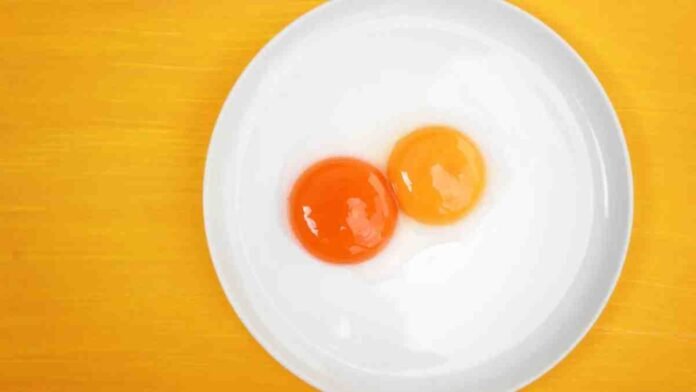When choosing eggs the colour of the yolk, yellow or orange can be a point of curiosity. While some may assume that the yolk colour directly indicates its nutritional value the truth is that it’s more about the diet of the hen than the actual health benefits.
What Causes the Difference in Yolk Color?
The nutrition of the hen has a significant impact on the colour of the egg yolk. Eggs with darker orange yolks are typically produced by hens fed a diet high in yellow-orange pigments, such as corn, alfalfa, and marigold petals. Conversely, lighter yellow yolks are produced by chickens fed a more conventional grain diet.
Nutritional Differences: Do They Matter?
There is little to no difference between orange and yellow yolks regarding basic nutrients. Both have the same quantity of calories, fat, and protein. However, the nutrient content of the egg can also be affected by the diet, which involves the yolk colour. Because the chickens get these nutrients from their food, eggs with darker orange yolks may have somewhat higher quantities of antioxidants, vitamin A, and omega-3 fatty acids.
Which One is Healthier?
Orange yolks might be slightly superior regarding certain nutrients, but the health advantages are negligible. The vitamins, minerals, and healthy fats in yellow and orange yolks are good for the brain, eyes, and general health. Ultimately, the egg’s quality—including the chickens’ upbringing and diet—determines its health.
The nutritional advantages of both orange and yellow yolks are evident. Choose eggs with darker yolks if you want a modest increase in antioxidants and omega-3s. Your health will be most affected by concentrating on the quality of the eggs and the overall balance of your diet.



